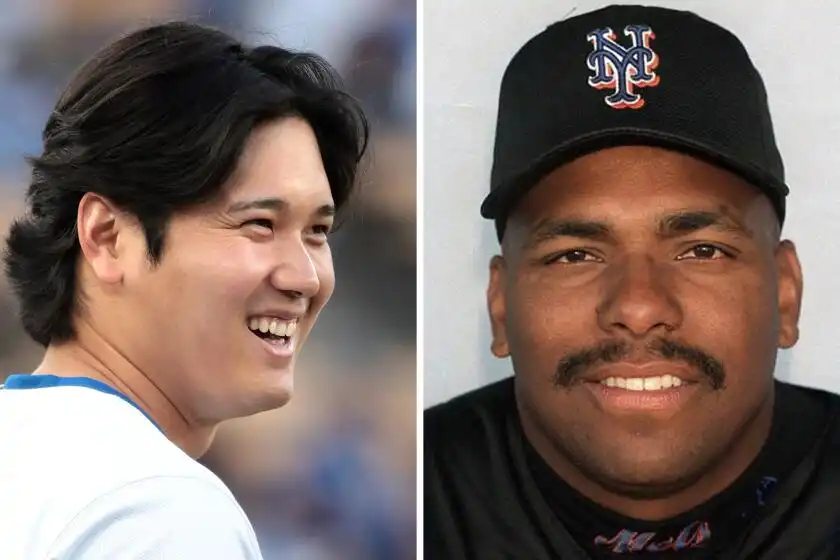Bobby Bonilla Day: Deferred contracts vs Shohei Ohtani deal
Former Mets player Bobby Bonilla receives $1,193,248.20 annually through 2035 due to deferred salary, a financial strategy that players are considering.
Bobby Bonilla Day should be a day of celebration for all, but unfortunately, it is not. Only one former ballplayer, aged 61, receives a substantial payment of $1,193,248.20 from the New York Mets each July 1st until 2035. The reason behind this is the concept of deferred payments.
While this sum may not be as staggering as Shohei Ohtani's earnings, it is still significant. Bonilla's payments began in 2011, a decade after his retirement. Throughout his 16-year career, he proved to be a solid hitter, accumulating 2,010 hits, 287 home runs, and a 30.2 wins above replacement. Despite playing for seven different teams, including a brief stint with the Dodgers in 1998, it was his time with the Mets from 1992 to 1995 and in 1999 that led to the unique deferred payment agreement.
The Mets agreed to defer Bonilla's $5.9 million salary in 2000, opting instead to pay him annually from 2011 to 2035. This decision was influenced by Mets owner Fred Wilpon's investment with Bernie Madoff, which initially seemed lucrative but ultimately led to significant losses. The deferred payments allowed the Mets to allocate funds towards signing key players like Mike Hampton, Derek Bell, and Todd Zeile, who contributed to the team's success in 2000.
Similarly, Shohei Ohtani and the Dodgers agreed to defer a significant portion of his salary to enable the team to secure additional star players over the next decade. This strategic move was orchestrated by Ohtani, resulting in annual payments of $68 million from 2034 to 2043. Other players like Mookie Betts, Freddie Freeman, and Teoscar Hernandez have also opted for deferred payments, showcasing a growing trend in the baseball industry.
While deferring salary may not always be financially advantageous for players due to inflation, it can offer long-term benefits for both players and teams. The Major League Baseball Players Association supports players in making informed decisions regarding deferred contracts, emphasizing the importance of considering the net present value of a deal.
Bonilla's unique situation, with deferred payments from both the Mets and the Orioles, serves as a reminder of the complexities and nuances of contract negotiations in professional sports. His story highlights the impact of deferred payments on players' financial stability and the strategic implications for teams in roster-building. Ultimately, Bobby Bonilla Day serves as a testament to the intricacies of baseball contracts and the long-lasting effects of financial decisions in the world of sports.











Comments on Bobby Bonilla Day: Deferred contracts vs Shohei Ohtani deal